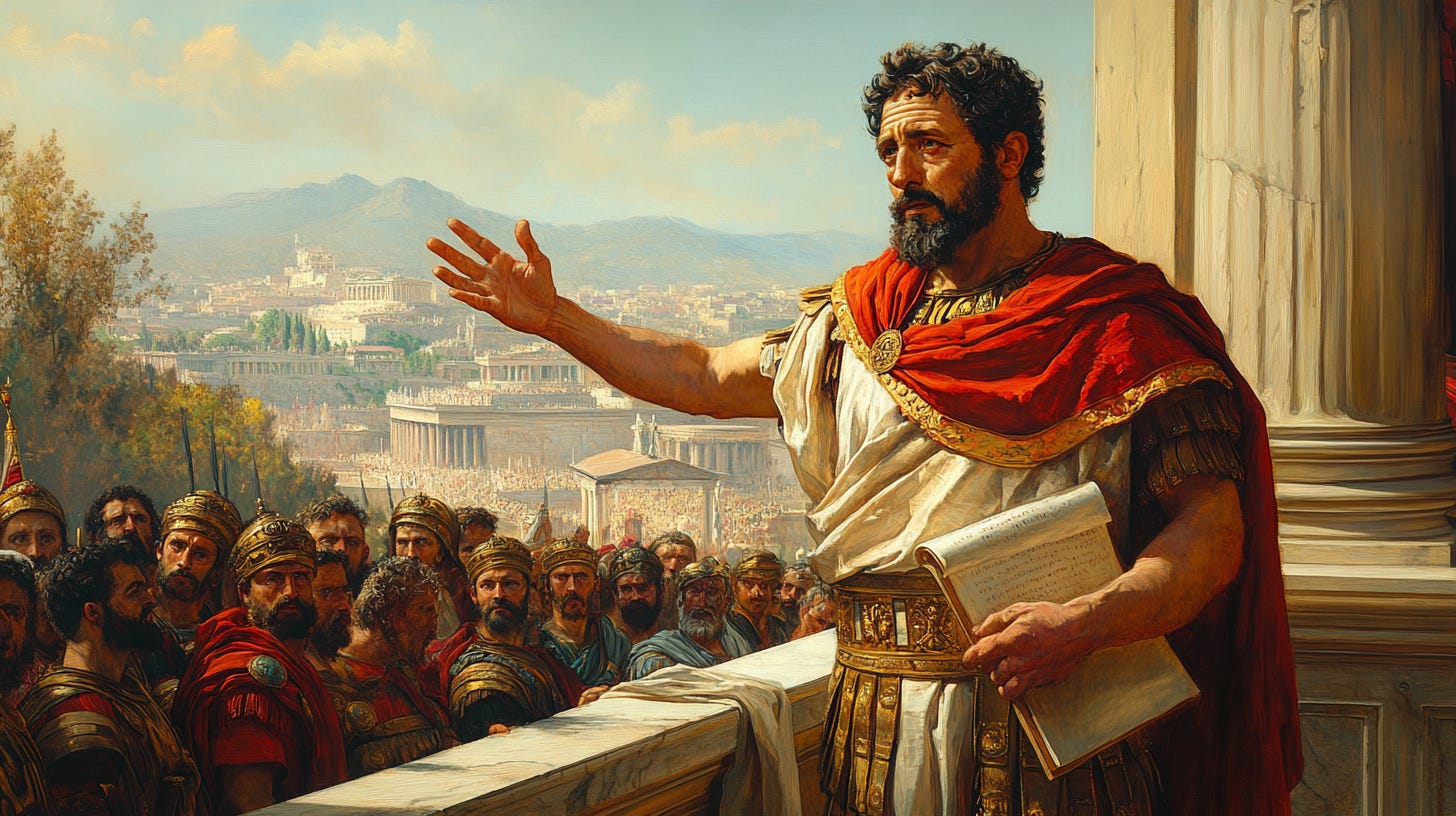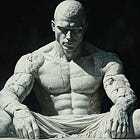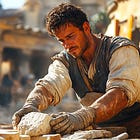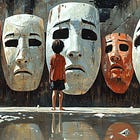What Makes a Good Leader?
On virtue, character, and the burden of guiding others
The question "What makes a good leader?" assumes we know what goodness means in the context of power over others.
This assumption may be our first mistake.
We live in an age that has confused leadership with performance, influence with entertainment, authority with popularity. We elect charismatic speakers and mistake them for wise governors. We follow confident voices and confuse them with principled guides. We admire those who accumulate followers and assume they must be worth following.
But consider this uncomfortable possibility: most of what we call leadership today would have been recognized by ancient philosophers as its precise opposite. The pursuit of power for its own sake. The cultivation of image over substance. The manipulation of emotions rather than the elevation of character. The promise of easy solutions to complex problems.
True leadership, the kind that actually improves the human condition rather than merely organizing it, operates by entirely different principles. It requires qualities that our culture not only fails to reward but actively punishes: the willingness to be unpopular, the courage to tell inconvenient truths, the strength to make decisions that benefit the future at the expense of the present.
The Character Paradox
Here's the central paradox of virtuous leadership: the people most qualified to wield power are often those least interested in obtaining it.
Why would this be true?
Because understanding the weight of responsibility that comes with influence over others' lives naturally creates reluctance. The person who grasps the moral complexity of making decisions that affect multiple people, who recognizes the potential for their own corruption, who sees how power can distort judgment and isolate the powerful from reality, develops a healthy fear of leadership roles.
Meanwhile, those who eagerly seek power often do so precisely because they haven't grappled with these complexities. They see leadership as an opportunity for self-advancement rather than as a burden of service. They focus on the privileges of authority rather than its responsibilities. They imagine that being in charge means having their preferences implemented rather than having their character tested under extreme pressure.
Cato the Younger exemplified this paradox. He repeatedly refused positions of greater authority because he understood that power would inevitably require compromises that would damage his integrity. Yet when Rome's republic was threatened, he reluctantly accepted leadership roles because he recognized that his reluctance was precisely what qualified him for them. His resistance to power was the source of his power.
This suggests that our entire approach to identifying leaders may be backwards. Instead of looking for those who campaign for authority, we might look for those who demonstrate competence in handling responsibility they never sought. Instead of rewarding ambition for leadership, we might reward excellence in whatever domain someone finds themselves called to serve.
The question becomes not "Who wants to lead?" but "Who has proven capable of putting the welfare of others before their own comfort, status, or preferences?"
The Burden of Vision
Good leaders see things that others cannot or will not see. This sounds like an advantage until you realize what it actually means: living with knowledge that makes you perpetually unpopular.
The leader who sees that current policies will create problems five years from now must argue against popular measures that provide immediate benefits. The leader who recognizes that painful changes are necessary must advocate for discomfort that everyone wants to avoid. The leader who understands that easy answers don't exist must resist the pressure to provide them anyway.
This creates what we might call the prophet's dilemma: the clearer your vision of what needs to happen, the more isolated you become from those you're trying to help. People don't want to hear that their problems are complex, that solutions require sacrifice, that change is difficult and uncertain. They want to be told that someone else is responsible for their difficulties and that fixes are simple and painless.
A virtuous leader refuses to provide these comforting lies, even when doing so would increase their popularity and effectiveness in the short term. They understand that false comfort ultimately causes greater harm than honest difficulty. They recognize that their job is not to make people feel good but to help them navigate reality skillfully.
But the deeper question is that if good leadership requires telling people what they don't want to hear, how can democratic systems consistently produce good leaders? How can a process that depends on popular support reliably elevate those whose primary qualification is their willingness to be unpopular?
This tension suggests that the challenge isn't just finding good leaders but creating cultures that reward virtue over charisma, substance over style, long-term thinking over immediate gratification. The quality of leadership in any society reflects the quality of character that society actually values, regardless of what it claims to value.
The Test of Power Itself
Perhaps the most important quality in a leader is how they respond to power once they have it.
Power reveals character like nothing else.
When you can get away with selfishness, do you choose service? When you can prioritize your own interests without consequence, do you prioritize others' welfare? When you can surround yourself with people who tell you what you want to hear, do you seek out those who tell you what you need to hear?
The corruption of power isn't dramatic. It's gradual and often invisible to the person experiencing it. You start making exceptions for yourself. You begin believing your own rhetoric. You lose touch with the daily realities of those you lead. You become more concerned with maintaining your position than using it effectively.
Marcus Aurelius, writing his personal reflections while governing an empire, demonstrates what resistance to this corruption looks like. His journal entries reveal someone constantly questioning his own motives, reminding himself of his duties, fighting against the natural tendency to use power for personal advantage. He understood that good leadership requires constant vigilance against your own worst impulses.
This suggests that virtue in leadership isn't a fixed quality but an ongoing practice. It's not something you either possess or lack but something you must choose repeatedly, often under conditions that make virtue costly and vice profitable.
The leader who maintains integrity over time develops what we might call moral muscle: the capacity to do what's right even when it's difficult, unpopular, or personally disadvantageous. This capacity can only be built through repeated exercise under increasing pressure.
Which raises another uncomfortable question: how can we identify leaders with strong moral muscle without first testing them under the very pressures that reveal character? How can we know who will resist corruption without giving them opportunities to be corrupted?
Beyond Competence
Competence in leadership includes technical skills: decision-making ability, communication effectiveness, strategic thinking, operational knowledge. But competence without character creates technocratic efficiency in service of unclear or potentially harmful ends.
History is full of highly competent leaders who used their skills to implement terrible visions. They could organize people, execute plans, and achieve measurable results. But they lacked the moral foundation that determines whether those results serve human flourishing or human degradation.
Character provides the compass that determines how competence gets directed. It answers the question: competent at serving what? Skilled at achieving which goals? Effective at creating what kind of world?
The virtuous leader possesses both the technical capacity to influence events and the moral clarity to influence them in directions that honor human dignity, promote justice, and serve the common good. They can execute strategy and they know which strategies are worth executing.
This integration of competence and character creates what ancient philosophers called practical wisdom: the ability to know what should be done and how to do it effectively in specific circumstances. It's the bridge between high ideals and messy realities, between moral principles and practical constraints.
But practical wisdom can only develop through experience applying principles under pressure. It can't be learned abstractly or acquired through study alone. It requires making actual decisions with real consequences, failing sometimes, learning from those failures, and gradually developing better judgment.
This means that good leadership emerges through a process of trial and testing that includes both success and failure, both popular and unpopular decisions, both clear victories and ambiguous outcomes. The leader's character gets revealed and refined through navigating these varied experiences while maintaining commitment to principles larger than personal advancement.
📝 Today's Stoic Gameplan
Examine your relationship with authority: Think about times when you've had power over others, even in small ways. How did you use it? What temptations did you face? What does this reveal about your character under pressure?
Question your motivations: If you found yourself in a leadership position, what would drive your decisions? Personal advancement? Popular approval? Genuine service to others? Be honest about what actually motivates you versus what you think should motivate you.
Practice virtue without recognition: Choose to do something right today that no one will notice or reward. How you behave when there's no external incentive reveals your internal character more clearly than public actions.
Study leaders you admire: Identify someone whose leadership you respect. What specific qualities make them effective? How do they handle unpopular decisions? What can you learn from their example about integrating competence with character?
The world always needs better leaders, but it needs better followers even more. People who can recognize virtue in others, who can support principled decisions even when they're costly, who can distinguish between leaders worth following and performers worth ignoring.
Your own character development contributes to the quality of leadership in your community, your organizations, and your society. By becoming someone who values substance over style, principle over popularity, you create demand for leaders who embody those same qualities.
The question "What makes a good leader?" ultimately becomes "What makes a good person?" And that question can only be answered through the choices you make when no one is watching and nothing external compels you toward virtue.
Stay stoic,
SW
Continue reading:







Thank you for this post. I am currently in a leadership position and this has brought up some good questions to ask myself as a leader. I lead a crew of wildland firefighters. We work in a very dynamic environment that requires quick thinking and action and sometimes I have to make some really unpopular decisions and take ownership of those decisions. That ownership has been the most important part of my growth in this field and as a leader. As such, I have to recognize that, yes, at times being in a role of authority has played on my ego and enabled some of my worst habits. But amongst my fellow crew leads, we try to remind ourselves to stay humble and work on ourselves as leaders everyday. I think this post serves as a good reminder that I am in this position to serve those I lead and to serve the communities we help protect everyday.
That's what I am and have been practicing it forever. I never had the definitions pointed out to me and do wish I were better. Very few accept this form of leadership and put it down. To me it is a reflection of the times - sadly. I will persevere with your help guiding me.